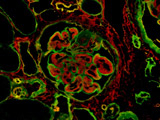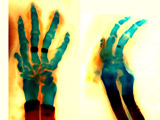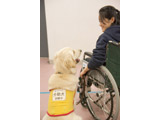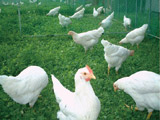Graduate School of Veterinary Science
The educational philosophy of the Graduate School of Veterinary Science is to build on a strong foundation of veterinary medicine and animal science by pursuing and teaching academic theory, logic and applied science related to both animals and humans. Based on this philosophy, the Graduate School of Veterinary Science aims to nurture human resources who are well-equipped to contribute to the welfare of human beings and animals, the peace of society, coexistence as living creatures and the advancement of culture.
Course of Veterinary Science
-Doctor of Veterinary Science (Ph.D.)
From research connected with genetic engineering to the prevention of animal diseases, students address the various problems associated with the science of living things. Study and research are not limited to medical treatments, but deal with the wide range of problems facing animals, humans and the natural world.
Based on the educational philosophy and goals of the Graduate School of Veterinary Science, our system of research and education stresses problem solving ability and practical skills. Training is provided for students in the veterinary science graduate course to nurture the future generation of advanced clinical veterinarians, highly specialized veterinary professionals, scientists and educators. In addition, the doctor course aims to cultivate specialised and advanced research capabilities, to deepen the scholarship underlying those abilities and, through extensive research and education into veterinary preventative medicine, genetic diagnosis, hereditary diseases, immunotherapy, transplantation, infectious diseases, clinical pharmacology, clinical toxicology, clinical pathology and bioinformatics, to contribute to human health.


Course of Animal Science and Biotechnology
-Doctor of Science and Culture (Ph.D.)
-Master of Science (Animal Science and Biotechnology)
With specialists in a wide range of fields, from the level of genetics to the level of global ecosystems, students on this course creatively tackle the major issues connected with animal science.
Based on the educational philosophy and goals of the Graduate School of Veterinary Science, our objective is to cultivate professionals, researchers and educators with advanced specialized skills who can conduct science for the social well-being of both animals and humans. With the goal of creating a symbiotic relationship between animals and people, research and education are conducted into cells, proteins and genes from animals and microorganisms to analyze their functions and to investigate the applications of such analysis. In food science, students research the reduction and removal of the main sources of risk in the food chain, as well as the use of bioactive material for environmental improvement. In addition, the course also focuses on the applied science of animal health, the preservation of wild animals and ways to reduce of the friction between them and human society.


